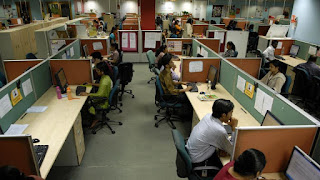The solutions were generated by over 150 stakeholders during a two-day workshop, hosted on 19–20 February 2020 in partnership with the Directorate of Urban Land Transport, Invest Karnataka Forum, and Department of Industries and Commerce. Participants addressed mobility challenges and developed action plans for solutions across several interrelated thematic areas including, charging and battery swapping infrastructure, data-based solutions, electric vehicle (EV) manufacturing, first and last-mile connectivity, public transport, and urban final-mile delivery.
Solutions ranged from developing data governance and technology frameworks to policy recommendations to support indigenous manufacturing and new mobility services to electric vehicle pilots with charging infrastructure. Other solutions included approaches to develop service-based public transport contracts and awareness campaigns for non-motorized transport.
One of the findings of RMI is that whole systems approaches are required to drive systemic change in mobility. “Transformational change in complex systems requires transformation at different levels of that system—to name a few areas, change requires transformation in technology, in policy, and in people and mindsets,” commented Clay Stranger, Senior Director at Rocky Mountain Institute. “The discussions at the workshop, the proposed solutions, and their next steps take into account these critical areas.”
The stakeholder generated solutions to help address many of Bangalore’s mobility challenge include:
Public Transport:
i) Develop, implement, and monitor public transport service contracts (public transport service obligation).
First- and last-mile connectivity:
ii) Promote first- and last-mile connectivity in high density corridors of the city.
iii) Design and amend policy and regulations to promote new modes of first- and last-mile connectivity.
Data-based solutions (including hardware and software) to enable new mobility and technologies:
iv) Implement a data governance and technology framework.
Charging and battery swapping infrastructure:
v) Implement an EV charging and swapping data collection and sharing program.
vi) Establish an EV infrastructure pilot for multiple vehicle use cases.
Electric vehicle manufacturing and supply chain:
vii) Develop an ecosystem through a supply-side policy framework.
viii) Establish a common parts platform.
Urban final-mile delivery:
ix) Improve charging and swapping infrastructure for final-mile delivery.
x) Enable use of EVs for final-mile delivery through small and medium enterprises (SMEs) acting as micro-hubs for storing EVs and goods.
RMI India and other conveners also acknowledge the current challenges associated with the COVID-19 pandemic. “As Bangalore restarts economic activity after the lockdown, we need to ensure that adequate safety measures are in place in the public transportation systems because the city cannot afford to lose its public transport ridership,” shared Akshima Ghate, Principal at RMI India. “In fact, the city has to target an increase in the modal share of public transport.”
To this end, Rocky Mountain Institute, RMI India, and Micelio are pursuing opportunities to adapt some of the solutions to provide a near-term COVID-19 response. Examples of this include using data and technology platforms for ticketless payments and user notification to decrease transmission risk and increase transparency; expanding non-motorized transport systems to encourage safe walking and cycling; and developing a more resilient supply chain, bolstered by indigenously designed and manufactured parts for electric vehicles.
The report also explores the long-term prospects for domestic manufacturing of electric vehicles and the need to bring resiliency to supply chains recently disrupted by COVID-19. “Trying to diversify India’s supply chain for raw materials is going to be very crucial in the long term, so that we can build out our manufacturing capability and also have that secure supply chain so that we can drive more electric vehicle adoption,” commented Shreyas Shibulal, Founder and Director of Micelio.
Moving forward, Rocky Mountain Institute, RMI India, and Micelio are actively monitoring the COVID-19 pandemic and coordinating with government agencies to advance a select portfolio of mobility solutions to build a safe, resilient, and efficient mobility system for Bangalore’s inhabitants.

No comments:
Post a Comment